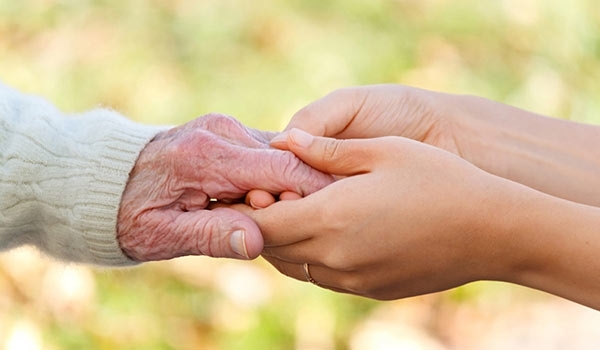The Words of Allah Almighty: “We have instructed man to honour his parents.” (29:8)1. Abu ‘Amr ash-Shaybani said, “The owner of this house (and he pointed at the house of ‘Abdullah ibn Mas’ud) said, “I asked the Prophet, may Allah bless him and grant him peace, which action Allah loves best. He replied, ‘Prayer at its proper time.’ ‘Then what?’ I asked. He said, ‘Then kindness to parents.” I asked, ‘Then what?’ He replied, ‘Then jihad in the Way of Allah.'” He added, “He told me about these things. If I had asked him to tell me more, he would have told me more.” 2. ‘Abdullah ibn ‘Umar said, “The pleasure of the Lord lies in the pleasure of the parent. The anger of the Lord lies in the anger of the parent.”
2. Dutifulness to One’s Mother
3. Bahz ibn Hakim’s grandfather said, “I asked, ‘Messenger of Allah, to whom should I be dutiful?’ ‘Your mother,’ he replied. I asked, ‘Then whom?’ ‘Your mother,’ he replied. I asked, ‘Then whom?’ ‘Your mother,’ he replied. I asked, ‘Then whom?’ ‘Your mother,’ he replied. I asked, ‘Then to whom should I be dutiful?’ ‘Your father,’ he replied, ‘and then the next closest relative and then the next.'” 4. ‘Ata’ ibn Yasar said that a man came to Ibn ‘Abbas and said, “I asked a woman to marry me and she refused to marry me. Another man asked her and she agreed to marry him. I became jealous and killed her. Is there any way for me to repent?” He asked, “Is your mother alive?” “No,” he replied. He said, “repent to Allah Almighty and try to draw near Him as much as you can.” ‘Ata’ said, “I went to Ibn ‘Abbas and asked him, ‘Why did you ask him whether his mother was alive?’ He replied, ‘I do not know of any action better for bringing a person near to Allah than dutifulness to his mother.'”
3. Dutifulness to One’s Father
5. Abu Hurayra said, “The Prophet was asked, ‘Messenger of Allah, to whom should I be dutiful?’ ‘Your mother,’ he replied. He was asked, ‘Then whom?’ ‘Your mother,’ he replied. He was asked, ‘Then whom?’ ‘Your mother,’ he replied. He was asked, ‘Then whom?’ ‘Your mother,’ he replied. He was asked, ‘Then whom?’ He replied, ‘Your father.'” 6. Abu Hurayra reported: “A man came to the Prophet of Allah, may Allah bless him and grant him peace, and asked, ‘What do you command me to do?’ He replied, ‘Be dutiful towards your mother.’ Then he asked him the same question again and he replied, ‘Be dutiful towards your mother.’ He repeated it yet again and the Prophet replied, ‘Be dutiful towards your mother.’ He repeated the question a fourth time and the reply was, ‘Be dutiful towards your mother.’ Then he put the question a fifth time and the Prophet said, ‘Be dutiful towards your father.'”
4. Dutifulness to Parents, even if they are unjust
7. Ibn ‘Abbas said, “If any Muslim obeys Allah regarding his parents, Allah will open two gates of the Garden for him. If there is only one parent, then one gate will be opened. If one of them is angry, then
Allah will not be pleased with him until that parent is pleased with him.” He was asked, “Even if they wrong him?” “Even if they wrong him” he replied.
5.Gentle words to Parents
8. Taysala ibn Mayyas said, “I was with the Najadites [Kharijites] when I committed wrong actions which I supposed were major wrong actions. I mentioned that to Ibn ‘Umar. He inquired, ‘What are they?” I replied, ‘Such-and-such.’ He stated, ‘These are not major wrong actions. There are nine major wrong actions. They are: associating others with Allah, killing someone, desertion from the army when it is advancing, slandering a chaste woman, usury, consuming an orphan’s property, heresy in the mosque, scoffing, and causing one’s parents to weep through disobedience.’ Ibn ‘Umar then said to me, ‘Do you wish to separate yourself from the Fire? Do you want to enter the Fire?’ ‘By Allah, yes!’ I replied. He asked, ‘Are your parents still alive?’ I replied, ‘My mother is.’ He said, ‘By Allah, if you speak gently to her and feed her, then you will enter the Garden as long as you avoid the major wrong actions.'” 9. Hisham ibn ‘Urwa related this ayat from his father, “Take them under your wing, out of mercy, with due humility.” (17:24)
To be continued



